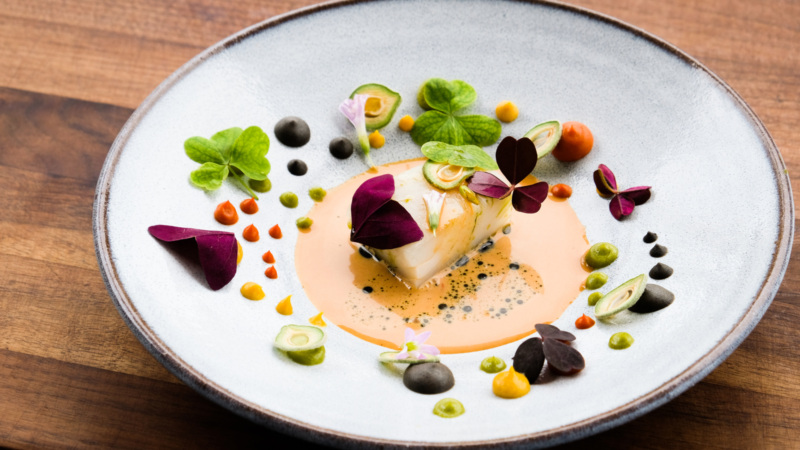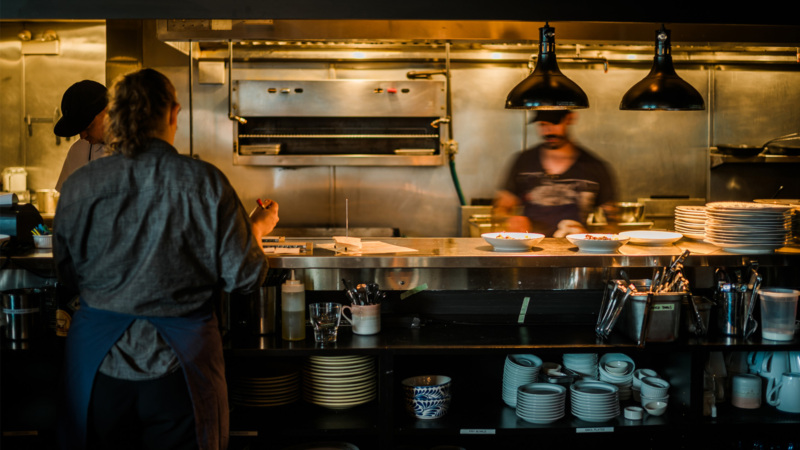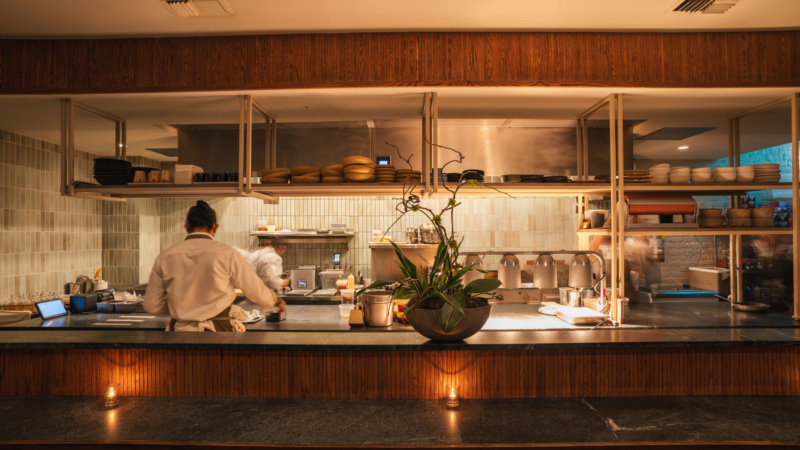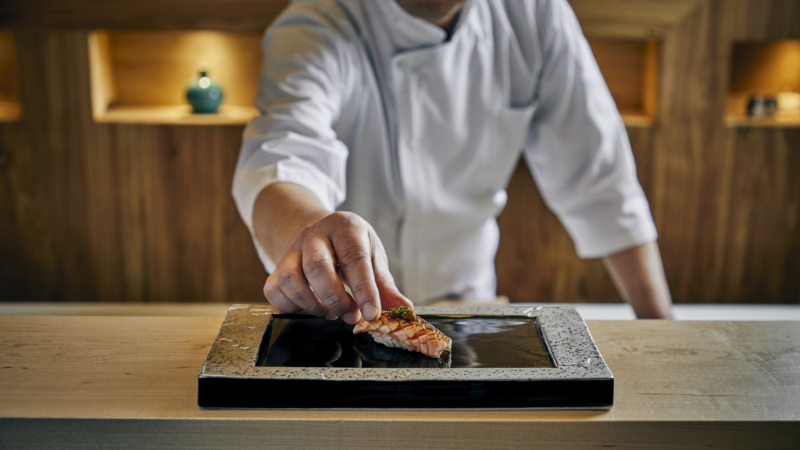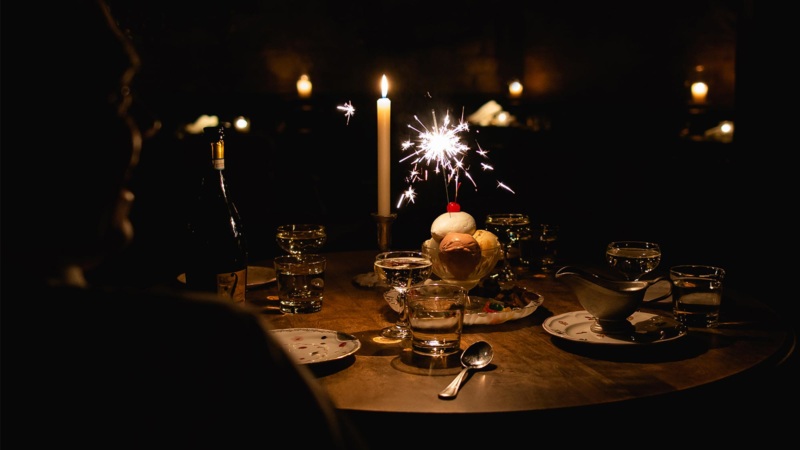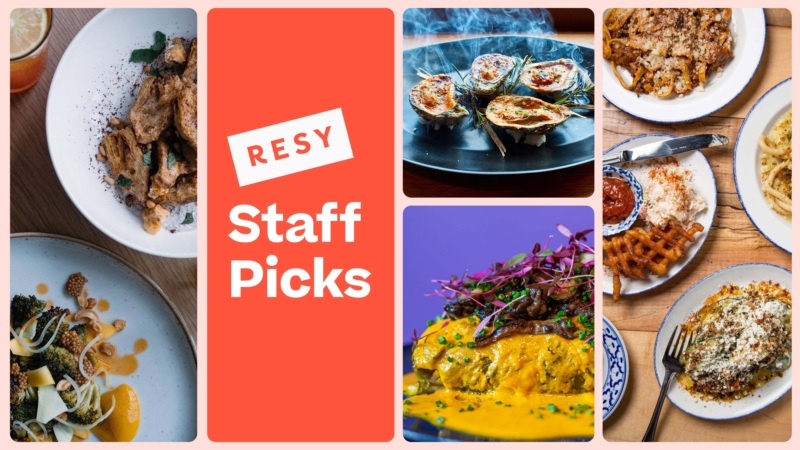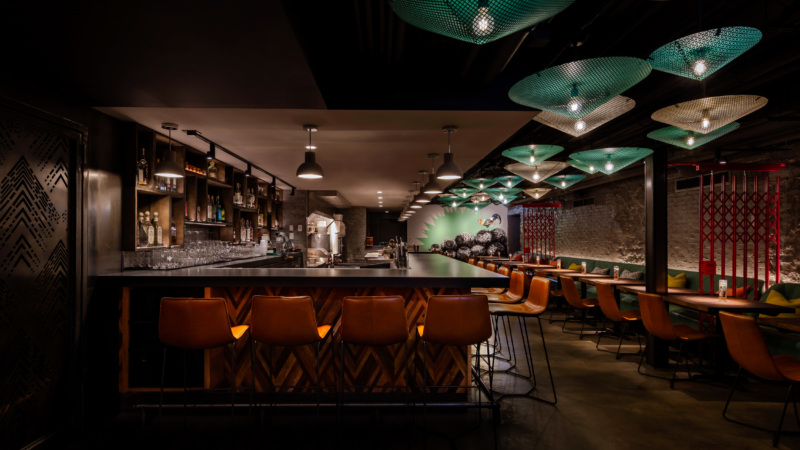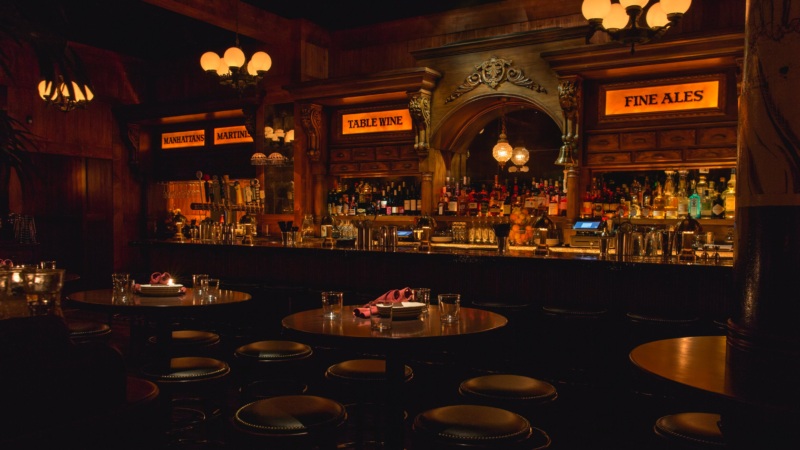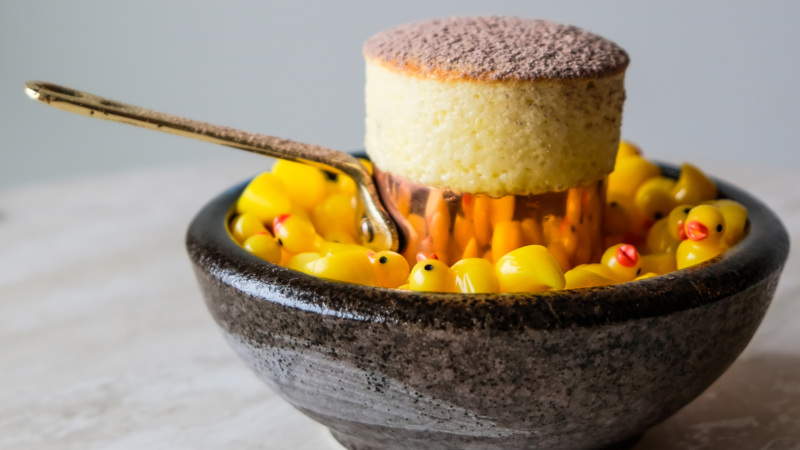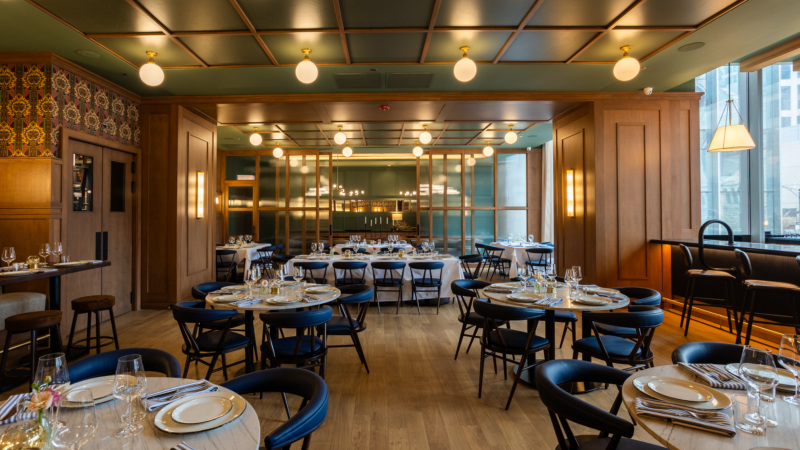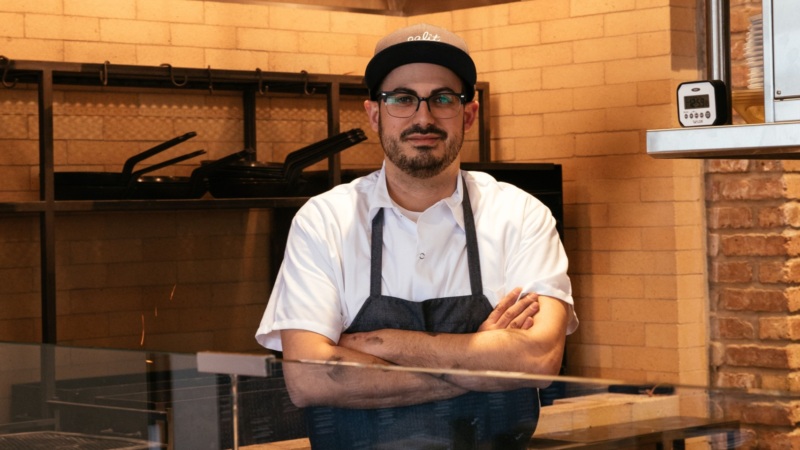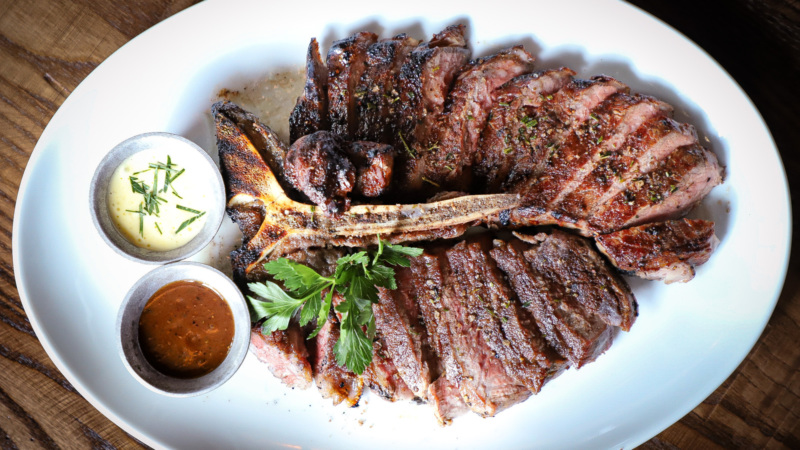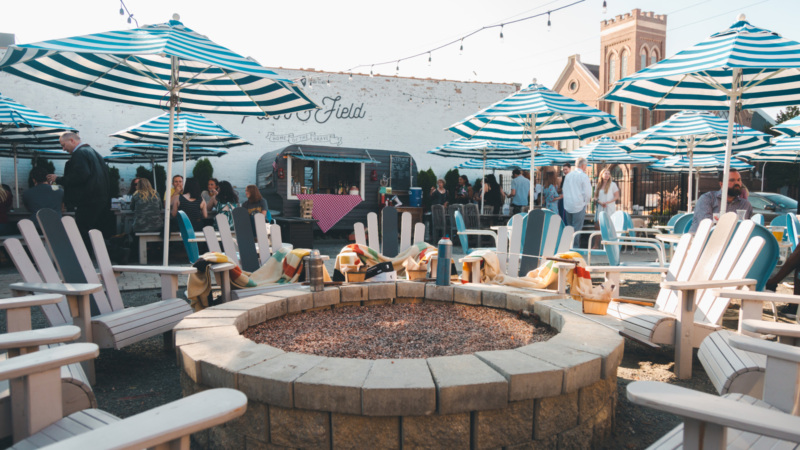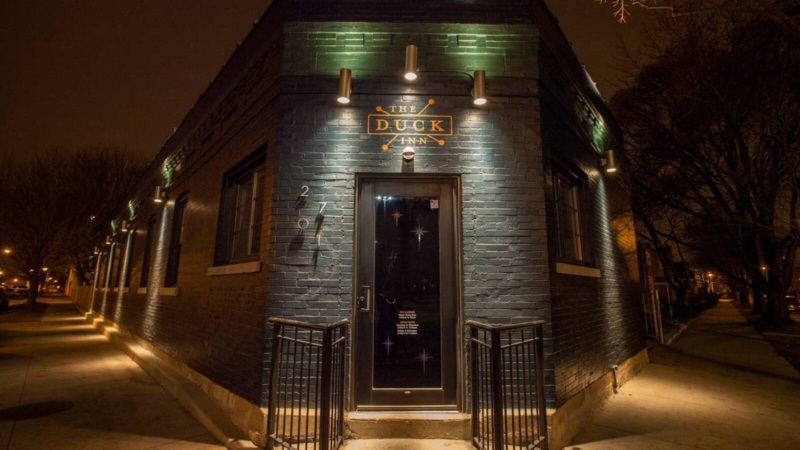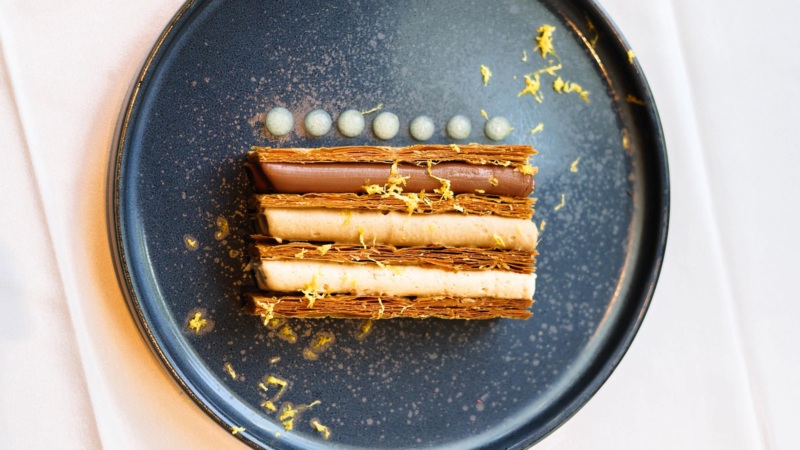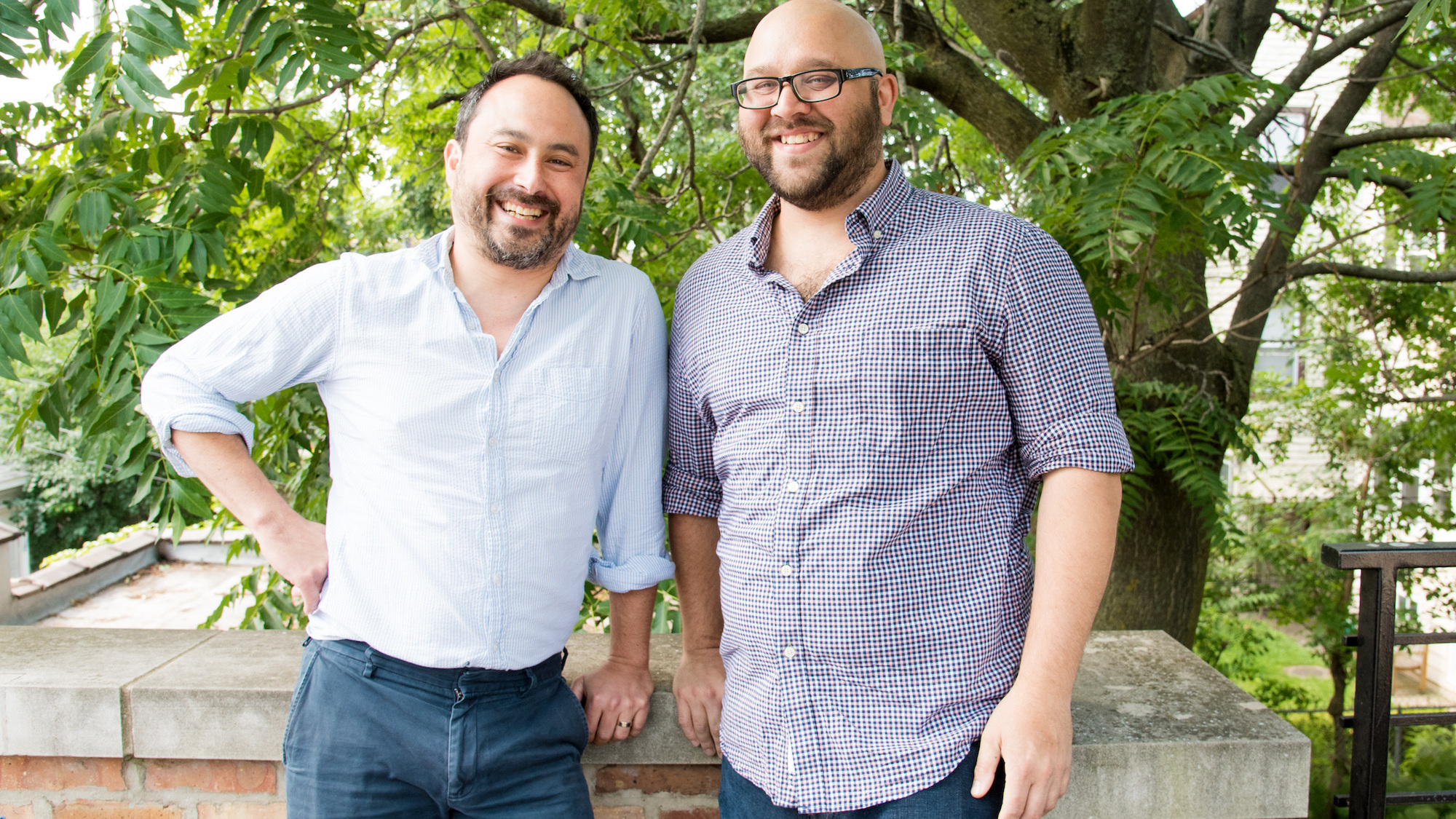
How Has Superkhana International Survived? With a Little Help From Its Friends
Superkhana International, the irreverent Indian spot in Logan Square, has an origin story like many other restaurants — as a series of pop-ups from a pair of friends who bonded over the shared love of a cuisine.
In this case, the friends were Zeeshan Shah (Old Town Social, The Bristol) and Yoshi Yamada (Blackbird, Lula Cafe), who hosted five years’ worth of roving, Indian-inspired pop-up dinners under the moniker Bombay Breakdown before debuting Superkhana, with support from partner Lula’s Jason Hammel, in July 2019.
The community was just getting to know this colorful brick-and-mortar with its fun-loving menu of Indianish dishes like butter chicken calzones when COVID-19 upended the entire world, and left the restaurant industry reeling.
Having been stripped down to survival mode as they contemplated a safe and viable path to reopening, Yamada and Shah returned to their collaborative roots. They reanimated Superkhana as a series of simultaneous pop-ups from within and outside their team — all offered from Superkhana’s small walk-up window, alongside its regular rice & dal and masala mushroom pizzas.
These included installations like Takeaway Bagel (since ended), created by pastry chef Kelly Helgesen; Be Cordials bottled cocktails and mixers from former beverage director and general manager Colleen Malone, and Roman-style Pizza Finestra from employee Cornelius Bouknight. They’ve been blended with other residencies run by industry friends, including virtual bakery startup Loaf Lounge, jarred spice and sauce company Thommy’s Toddy Shop, and Kedai Tapao, which features such traditional Malaysian dishes as nasi lemak . It’s this sort of blended mix of cuisines and approaches, all from a network of restaurant workers finding ways to keep busy and keep solvent during the pandemic, that has helped to rewrite many dining rules — and provide a glimpse of likely changes to the restaurant business as things move back toward normal.
That said, even as the city creeps back into dining in, with COVID numbers dropping and more Chicagoans getting vaccinated, Superkhana faces an uphill financial climb to reopening — not to mention a re-examination of its identity. We caught up with Yamada and Shah to discuss how they crammed so many ideas through one small carryout window, and what the future holds.
This conversation was edited for length and clarity.
Resy: Superkhana didn’t get too long to establish itself before the pandemic hit. Of course, no one was prepared for anything on this scale, but were you prepared to take some financial hits early on?
Yoshi Yamada: We were doing very well … but were not even remotely prepared to take some financial hits. It’s the rare successful restaurant that I think can, by the end of their first full year, have a little nest egg already; there is so much involved in paying off a restaurant. We were in no position to lose any kind of revenue.
Even restaurants that are very established and popular can’t afford to just throw money at ideas without a firm idea or plan in place, so shutting down and then maybe partially reopening, and maybe closing again felt like a very dangerous financial situation. And frankly, even more importantly, it felt very dangerous for our health and the health of everybody who works for us. So we felt like until we had a sense of the financial and health impact, we’d stay closed.
How did you weather the storm during those three-ish months?
Yamada: Initially, we had just enough capital to cover payroll, which was super important because nobody was working. We also have a really healthy relationship with our landlord … they worked with us to get to a point where the PPP came in. That, plus the latitude of our suppliers with what we owed on terms, was super essential.
Zeeshan Shah: I just applied to everything I could apply to. We got the PPP in early April, which was huge for us. We also got a $15,000 grant from the James Beard Foundation, and an [Economic Injury Disaster Loan], which was a government advance on the PPP. The combination of that allowed us to just sort of stumble forward.
How did you go about reopening Superkhana, while also hosting these installations and offshoots, like Takeaway Bagel, Be Cordials and Pizza Finestra. Have they been successful?
Yamada: We had an identity as a restaurant, but it was not imprinted on the city and community in a way that restaurants that have been around for a while are. When it became clear there was going to be some relief, that’s when we started to think about how to activate our return. We knew it was going to be in a very abbreviated form. We felt pretty certain that we weren’t going to be able to open the doors to the restaurant, but we had made the choice when building out the restaurant to put in a window by the bar.
View this post on Instagram
Yeah, why did you put in that window?
Yamada: It was a fantasy! Like, oh, we’ll put it by the bar and pass stuff out to people walking by! But it turned out to be a true lifeline.
We didn’t know quite what our return would look like, but we wanted to get food out to people, and we knew there were all these really talented people we work with — cooks, food runners, bakers. We started asking people on staff if they wanted to think about projects that were interesting to them and that we could grow into a business. Takeaway Bagel was first, but those seeds were all planted at the same time, through conversations with Cornelius and Colleen and Thom (Padanilam, of Thommy’s Toddy Shop).
[The team behind] Thattu (the since-closed South Indian restaurant that popped up over the summer) were old friends. Sarah (Mispagel) I knew from working at Nightwood, and Ben (Lustbader) from a while back. (Neither chef previously worked at Superkhana; in January their venture Loaf Lounge started popping up on weekends.)
It felt like this amplification of community to us — friends and people we know are all in this crazy situation together; let’s make the most of it.
Shah: The bottled cocktail program has been really cool, and an interesting new avenue to work through some inventory since we got approval from the city. (Bar manager) Kylie McCalla gets to play around with what’s on the shelf and come up with really cool ways to use things. And it’s been a great response. People come by at 4:30 on a Wednesday, like, I don’t want calzones, I don’t want anything but cocktails. We should get a punch card, maybe.
As restaurant operators, how do you logistically juggle all these balls in the air of running multiple concepts at once?
Yamada: It is simultaneously very easy and extremely complicated. All these folks are really good people so pretty easy to work with, and around each other. We tried to schedule things in a way that gives everybody space and time, but of course, it can get kind of hairy. There’s a lot going on, a lot of orders coming in. And there are always limits on space on how much you have.
Shah: I will say there’s been tons of learning, tons of cool and not-so-cool experiences with our point-of-sale system. Learning how to navigate that effectively and efficiently was really a pain in the ass for a while. And then the window, just kind of trying to engage people in this tiny little window with limited visibility in terms of foot traffic.
Is it difficult to get the word out about all these other ventures while still promoting your own business? I’m thinking, for example, about creating a standalone Takeaway Bagel brand beneath the Superkhana umbrella.
Yamada: You kind of put your finger on the complexities of maintaining our own identity while still supporting these projects. At first, Takeaway Bagel was just through Superkhana, which didn’t make sense to people. Then we tried to separate it, but if it got too separate it also didn’t make sense to people. It took us a while to find a balance between the two, where we’re sort of representing things accurately without being overly confusing.
How much of all these ventures has been about the survival of Superkhana, and how much is it about supporting your community?
Yamada: Initially, the ideal situation was it would be both. And to some degree, that’s what’s happened. Even if we had reopened Superkhana just from the get go, we knew we wouldn’t survive if we were just open for dinner. There was this really perfect fit, given Kelly’s idea for doing bagels … that made great sense for the business as well. If the business goes down, it can’t help anybody either. There’s that. So it was about striking a balance: How can we keep this going so we can keep all these projects going as well?
Do you have what you need to maintain Superkhana until there’s a vaccine? How are you feeling almost a year into this?
Yamada: Uncertain. Honestly, restaurants are all in a situation where, without help from things like the PPP, most of them aren’t going to make it. And we’re no different. We’re working really hard on our end to do what we can. In other words, if a second PPP came through, that might get us to a vaccination level and to where we can start feeling good about opening our doors.
View this post on Instagram
Assuming the business can survive to that point, how do you feel like the past year has changed what Superkhana might look like going forward?
Yamada: We’re starting to think through that now actually — how does this all come together if we’re able to reopen? In six months, everything looks different, like a lot of these things. So there’s some element of, who knows what’s going to happen? But I also think Z and I are huge fans of collaboration. And continuing to collaborate with other people and other projects is something we will keep doing.
Shah: It’s a natural thing for us to include other people and help grow our community because that’s where we started back in 2015. So yeah, it’s definitely our spirit. And I think we’re finding with this pandemic, the only way forward in a lot of ways is together.
Maggie Hennessy is a Chicago-based restaurant critic and food writer, whose work has appeared in such publications as Eater, Plate, Food52, Wine Enthusiast and others. Follow her on Instagram and Twitter. Follow Resy, too.

